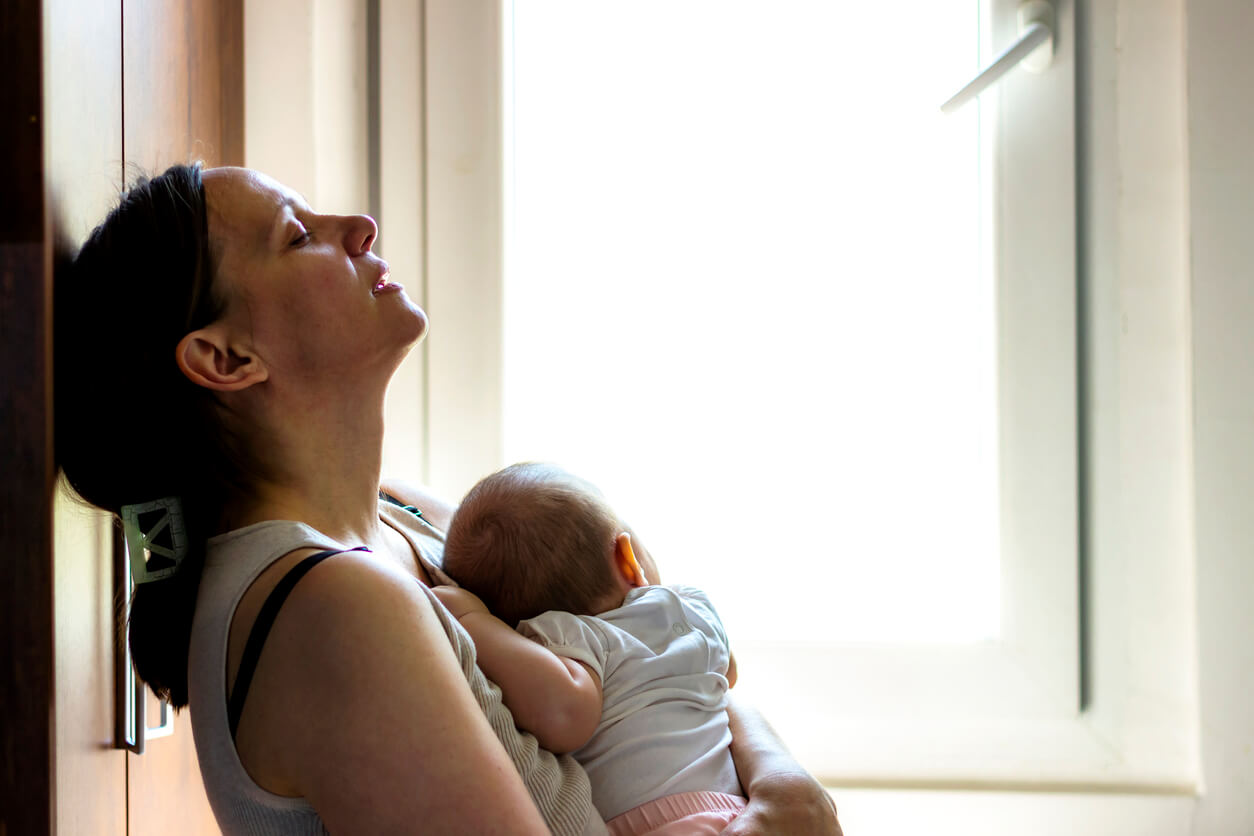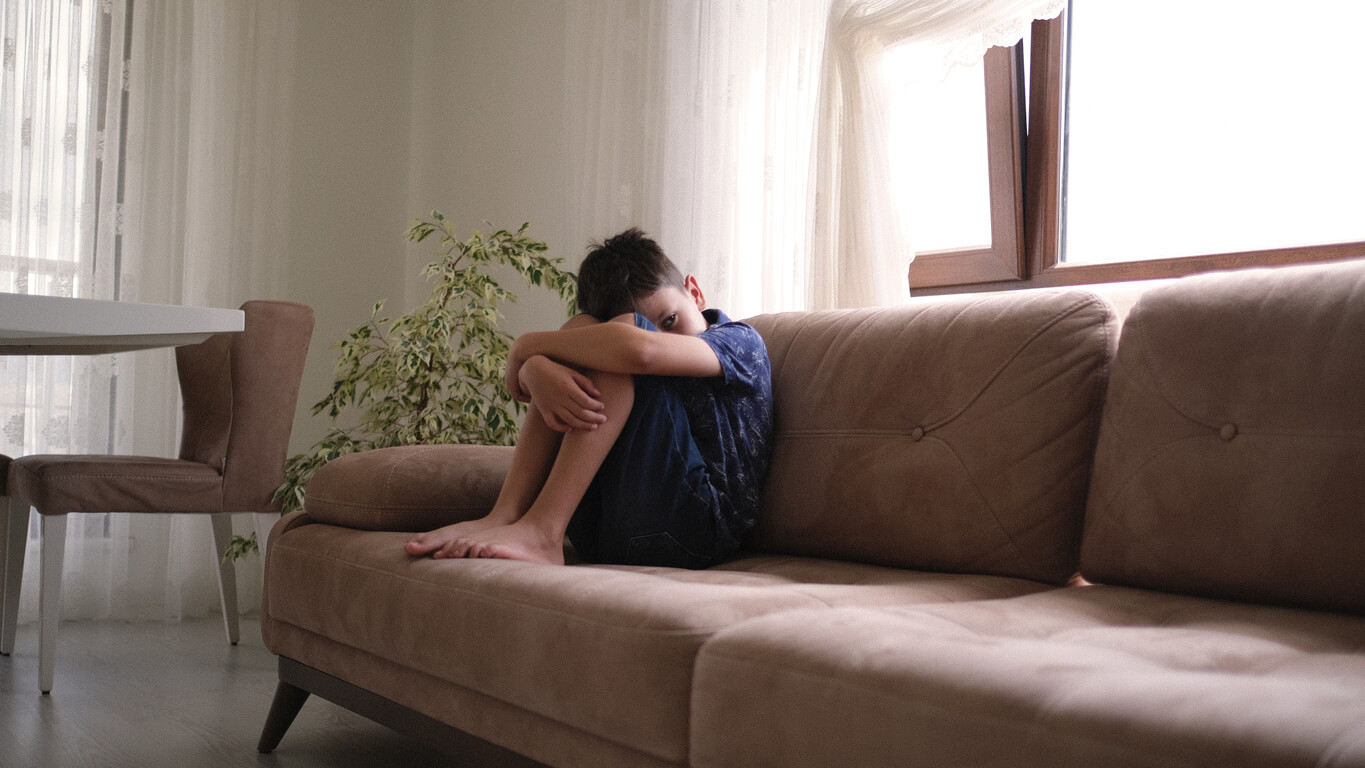Having an Unwanted Child


Written and verified by the psychologist Elena Sanz Martín
For some women, motherhood is a gift. And these, without a doubt, are the best conditions in which a child can grow up. But what happens when the woman who becomes pregnant doesn’t want to be a mother? What happens if, at that moment, she doesn’t have the financial means or the emotional resources to take responsibility for another life? When an unwanted child is born, the consequences for both mother and child can be serious.
In 2011, it was reported that 45% of pregnancies in the United States were undesired, although the rate’s higher among certain populations. And although this doesn’t always mean that the child isn’t loved, on many occasions, motherhood is experienced with anguish and frustration. This undoubtedly has psychological and emotional repercussions for the woman and the child.
The consequences of having an unwanted child
An unplanned pregnancy is generally experienced as a stressful event or an imposed responsibility that we don’t want or can’t assume. And, for this reason, from the very first moment, it can produce high levels of anxiety in the woman.
In some cases, after reflecting and weighing the situation, a different, more flexible, and positive perception of the situation is achieved. However, when this evolution doesn’t occur, having an unwanted child can have important emotional consequences for the parents.
First of all, there’s a greater risk for the woman of developing depression during pregnancy or in the postpartum period, and even suicidal ideations may appear.

The consequences of being an unwanted child
Beyond the repercussions that this situation can have on the parents, it’s generally the child who suffers the greatest impact. It has been found that, already from the womb, the baby perceives the mother’s emotions and is filled with them. Therefore, these children experience maternal stress, fear, and anxiety during gestation.
In addition, after birth, difficulties in establishing an attachment bond with the baby are common. Parents may be physically absent or emotionally unavailable to the child, so the child may suffer from deprivation of affection and parental neglect, abuse, or abandonment. Therefore, the child may grow up feeling inadequate, worthless, and helpless.
In other cases, parents may try to compensate for their feelings toward their child by overprotecting or overcontrolling them. But in this way, they only hinder their child’s full individual development.
Possible psychological problems of the unwanted child
The emotional conditions in which parenting takes place cause unwanted children to grow up feeling rejected or unworthy of love. Therefore, the need for approval is often a constant in their lives. Low self-esteem, anxiety, and depression are very present conditions, but there’s also a higher risk of initiation into substance abuse and school failure.
At the same time, relationships with others are also affected. For the same reason, it’s possible that they may become isolated or establish dependent relationships. In addition, they’re more likely to experience difficulties at work because of the intrinsic insecurity that accompanies them.

How to overcome and cope with the situation
Having an unwanted child is probably one of the biggest challenges you’ll face throughout your life. However, in light of the potential negative consequences, it’s important that you take action to try to minimize the impact. To do this, the following issues are critical:
- Accept the reality of your situation, without judging or punishing yourself. Guilt only causes suffering and doesn’t move us to take action. Responsibility, on the other hand, does.
- If you’ve decided to carry your pregnancy to term and raise your child, it’s important to seek help. You may find motherhood stressful and distressing and find it difficult to bond emotionally with your baby. Consulting with a perinatal psychologist can help you greatly in these areas.
- Professional support can also teach you how to regulate your emotions, modify your perspective, and find coping strategies that allow you to feel more satisfied with your situation and provide a better environment for your child to grow up in.
Accept reality and seek support
Accepting your reality will allow you to manage it and improve your satisfaction and emotional well-being. In addition, this will prevent your child from multiple psychological developmental problems that could seriously affect them in the future. Therefore, for both of you, seek out the support resources you need.
For some women, motherhood is a gift. And these, without a doubt, are the best conditions in which a child can grow up. But what happens when the woman who becomes pregnant doesn’t want to be a mother? What happens if, at that moment, she doesn’t have the financial means or the emotional resources to take responsibility for another life? When an unwanted child is born, the consequences for both mother and child can be serious.
In 2011, it was reported that 45% of pregnancies in the United States were undesired, although the rate’s higher among certain populations. And although this doesn’t always mean that the child isn’t loved, on many occasions, motherhood is experienced with anguish and frustration. This undoubtedly has psychological and emotional repercussions for the woman and the child.
The consequences of having an unwanted child
An unplanned pregnancy is generally experienced as a stressful event or an imposed responsibility that we don’t want or can’t assume. And, for this reason, from the very first moment, it can produce high levels of anxiety in the woman.
In some cases, after reflecting and weighing the situation, a different, more flexible, and positive perception of the situation is achieved. However, when this evolution doesn’t occur, having an unwanted child can have important emotional consequences for the parents.
First of all, there’s a greater risk for the woman of developing depression during pregnancy or in the postpartum period, and even suicidal ideations may appear.

The consequences of being an unwanted child
Beyond the repercussions that this situation can have on the parents, it’s generally the child who suffers the greatest impact. It has been found that, already from the womb, the baby perceives the mother’s emotions and is filled with them. Therefore, these children experience maternal stress, fear, and anxiety during gestation.
In addition, after birth, difficulties in establishing an attachment bond with the baby are common. Parents may be physically absent or emotionally unavailable to the child, so the child may suffer from deprivation of affection and parental neglect, abuse, or abandonment. Therefore, the child may grow up feeling inadequate, worthless, and helpless.
In other cases, parents may try to compensate for their feelings toward their child by overprotecting or overcontrolling them. But in this way, they only hinder their child’s full individual development.
Possible psychological problems of the unwanted child
The emotional conditions in which parenting takes place cause unwanted children to grow up feeling rejected or unworthy of love. Therefore, the need for approval is often a constant in their lives. Low self-esteem, anxiety, and depression are very present conditions, but there’s also a higher risk of initiation into substance abuse and school failure.
At the same time, relationships with others are also affected. For the same reason, it’s possible that they may become isolated or establish dependent relationships. In addition, they’re more likely to experience difficulties at work because of the intrinsic insecurity that accompanies them.

How to overcome and cope with the situation
Having an unwanted child is probably one of the biggest challenges you’ll face throughout your life. However, in light of the potential negative consequences, it’s important that you take action to try to minimize the impact. To do this, the following issues are critical:
- Accept the reality of your situation, without judging or punishing yourself. Guilt only causes suffering and doesn’t move us to take action. Responsibility, on the other hand, does.
- If you’ve decided to carry your pregnancy to term and raise your child, it’s important to seek help. You may find motherhood stressful and distressing and find it difficult to bond emotionally with your baby. Consulting with a perinatal psychologist can help you greatly in these areas.
- Professional support can also teach you how to regulate your emotions, modify your perspective, and find coping strategies that allow you to feel more satisfied with your situation and provide a better environment for your child to grow up in.
Accept reality and seek support
Accepting your reality will allow you to manage it and improve your satisfaction and emotional well-being. In addition, this will prevent your child from multiple psychological developmental problems that could seriously affect them in the future. Therefore, for both of you, seek out the support resources you need.
All cited sources were thoroughly reviewed by our team to ensure their quality, reliability, currency, and validity. The bibliography of this article was considered reliable and of academic or scientific accuracy.
- Monchietti Cocco, M. C. (2016). Prevención de abandonos físicos y psicológicos en hijos no deseados (Doctoral dissertation).
- David, H. P. (2011). Born unwanted: Mental health costs and consequences. American journal of orthopsychiatry, 81(2), 184.
- Francisco, J. C. (2020). La memoria emocional de la vida uterina. Punto Rojo Libros.
This text is provided for informational purposes only and does not replace consultation with a professional. If in doubt, consult your specialist.








